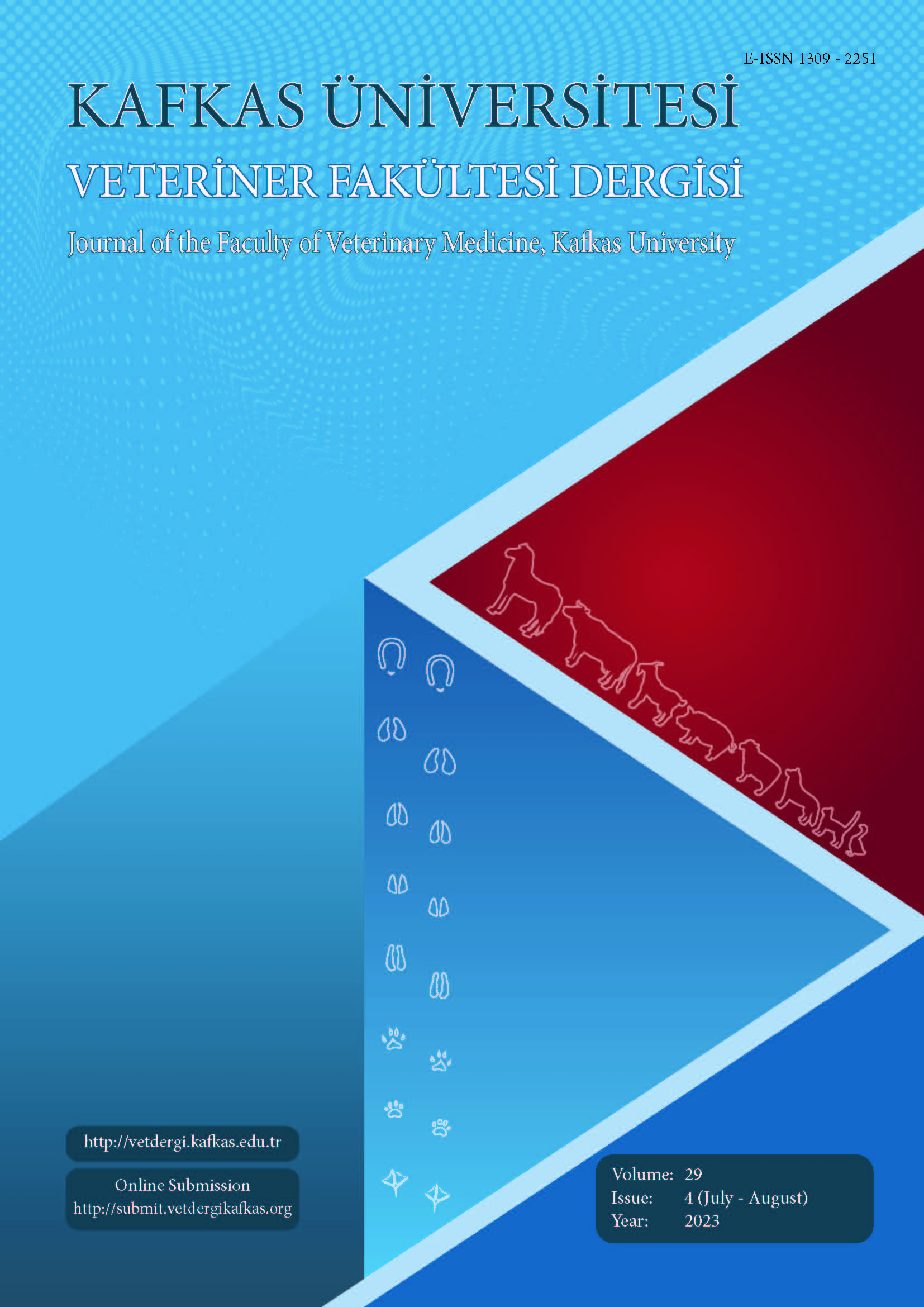
This journal is licensed under a Creative Commons Attribution-NonCommercial 4.0 International License
Kafkas Üniversitesi Veteriner Fakültesi Dergisi
2023 , Vol 29 , Issue 4
Effect of Coneflower, Neem, and Thyme Extracts on Growth Performance, Blood Chemistry, Immunity and Intestinal Microbial Population of Broilers
1Department of Pathobiology, Faculty of Veterinary and Animal Sciences, Muhammad Nawaz Sharif University of Agriculture, Multan, 66000, PAKISTAN2College of Veterinary and Animal Sciences Jhang, PAKISTAN
3College of Science, Nawroz University, Duhok, Kurdistan Region, IRAQ
4Department of LivestockServices, Ministry of Fisheries and Livestock, Government of the People’s Republic, Dhaka, BANGLADESH
5Department of Parasitology, Faculty of Veterinary Sciences, University of Agriculture Faisalabad,38000, PAKISTAN
6Department of Zoology, Faculty of Science, University of Agriculture Faisalabad,38000, PAKISTAN
7Department of Pharmacology and Physiology, Faculty of Veterinary and Animal Sciences, Muhammad Nawaz Sharif University of Agriculture, Multan, 66000, Pakistan
8Department of Animal Science, Faculty of Animal and Agricultural Sciences, Universitas Diponegoro, Semarang, Central Java Indonesia (50275)
9Xinjiang Agricultural Vocational Technical College, Changji, China
10Department of Pathology, PMAS-Arid Agriculture University Rawalpindi Sub Campus DOI : 10.9775/kvfd.2023.29625 This study investigated the effects of herbal extracts on growth performance, organ development, immunity parameters and intestinal microbial population of broilers. A total of 840 (one day old, initial weight 45±2 g) broiler chicks were divided into 5 groups with 6 replicates having 28 chicks in each. The control group (G1) fed with basal diet, and the antibiotic group (G2) was added with 15 mg/kg virginiamycin, while herbal extracts were given coneflower 20 mL/L (G3), neem 20 mL/L (G4), and thyme 20 mL/L (G5), respectively, in drinking water. The results showed that G3 presented significant results (P<0.05) on parameters like feed intake, body weight, weight of bursa of fabricius, weight of the small intestine, blood parameters as compared to the G2 group. As for as intestinal microbiota population concerned G5 decreased the Escherichia coli (E. coli) contents while, G4 increased the Lactobacillus contents. In conclusion, coneflower improved feed conversion ratio compared to virginiamycin in broilers while neem and thyme were the most effective in the enhancement of immune parameters, serum chemistry and E. coli contents. Keywords : Herbal Medicine, Broiler, Immunity, Intestinal microbe











